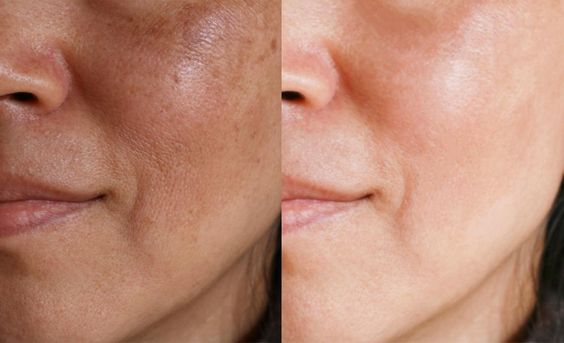Treatments also available in Naturopathy
Popular Skin Treatments
Melasma Treatment: Causes, Symptoms, Types, Procedure & Prevention
Melasma is a common pigmentation disorder that can affect the skin’s appearance, particularly in adult women. While it is a benign condition, its chronic nature can make it challenging to treat effectively.
At My Skin Coach, our experienced dermatologists specialize in treating various pigmentary concerns, including melasma, using revolutionary USFDA-approved methods with proven safety and efficacy. Read on to learn more about the melasma treatment procedure, results, cost, and more!
Understanding Melasma: Melasma is a skin condition characterized by the appearance of flat brownish or blue-grey patches, primarily on the face. It predominantly affects adult women and is often referred to as the “mask of pregnancy.” Sun exposure is a common risk factor, and the condition can be persistent and resistant to treatment.
Common Sites of Melasma: Melasma typically occurs on the face, including the cheeks, forehead, bridge of the nose, and chin. In rare cases, it may also affect the forearms, neck, and back.
Types of Melasma: Melasma can be categorized based on the depth of skin discoloration:
Epidermal Melasma: This type involves melanin deposits in the topmost layer of the skin (epidermis), resulting in dark brown patches with well-defined borders. It tends to respond better to treatment.
Dermal Melasma: In this type, pigment build-up occurs in the deeper layer of the skin (dermis), leading to light brown or bluish-grey diffuse patches that are less responsive to treatment.
Mixed Melasma: This type involves both epidermal and dermal pigmentation, making it the most common form. The treatment response may vary based on the location and amount of melanin build-up.
Signs and Symptoms of Melasma: Melasma presents as freckle-like spots, flat patches of brown, blue, or grey color, and defined or diffuse patches. The patches usually occur symmetrically on the cheeks, forehead, nose, chin, and jawline.
Causes of Melasma: The primary causes of melasma include:
Sun/UV Exposure: Exposure to UV radiation from the sun or electronic screens can stimulate excess melanin production, aggravating existing melasma or causing its recurrence after treatment.
Hormonal Imbalances: Melasma is often linked to estrogen and progesterone sensitivity. Pregnant women and those using high-dose hormonal contraceptives are more susceptible to melasma. Hormonal changes during menopause or conditions like hypothyroidism can also trigger or worsen melasma.
Other contributing factors may include family history, skin color (darker skin individuals are more prone), and chemical-based skincare products that cause skin irritation.
Diagnosing Melasma: At My Skin Coach, our dermatologists diagnose melasma through clinical examination of the discolored skin. In some cases, a Wood’s lamp method may be used to observe the pigmentation level under blue light. A biopsy may be performed in exceptional cases to confirm the diagnosis.
Treatment for Melasma: While no single treatment guarantees complete and permanent relief from melasma, our dermatologists create customized treatment plans to reduce melasma and prevent recurrence. Treatment options may include:
Topical or Oral Medications: Medications like hydroquinone, retinoids, bleaching agents, and tranexamic acid may be prescribed to lighten pigmented patches.
Advanced Procedural Treatments: Chemical peels and laser treatments, such as Q-switched Nd:YAG laser, may be recommended to target deeper melasma that doesn’t respond well to topical treatments.
Preventing Melasma: Although it may not be entirely preventable, you can reduce the risk of melasma and its recurrence by:
Avoiding Excessive Sun Exposure: Use protective gear and sunscreen with SPF 30 or above to shield your skin from sun damage.
Maintaining a Healthy Diet and Skincare Habits: A nutrient-rich diet and regular skincare routine contribute to overall skin health.
Consulting a Doctor: Discuss hormonal pill usage if you have a family history of melasma.
At My Skin Coach, we are committed to helping you achieve a brighter and clearer complexion. Our advanced treatments and expert care ensure optimal results and long-lasting satisfaction. Watch our videos on chemical peels and laser treatment to learn more about our procedures. Remember, sun protection is vital in the management of melasma, so follow our dermatologist’s recommendations for the best results.
My Skin Coach
Get Consultation
Everything you need to feel healthy and beautiful




